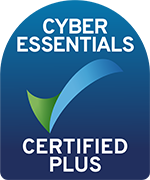
Office 365 vs the G Suite
The advantages of moving to the cloud are many and obvious, but they do raise the question of which cloud application(s) to use. For most SMEs, the leading contenders for Office applications are Outlook 365 and G Suite, often known as Google Docs or Google Drive.
Here is a quick guide to how they stack up.
Office software
Microsoft’s office software is basically the global standard and it’s now available online. The big advantage of this is that you can be confident that any files created will work seamlessly on any (modern) computer using Microsoft Office, whereas files created by some Microsoft-like software (such as Libre Office or Open Office) may not always keep the formatting you want when viewed in actual Microsoft Office.
Google Drive offers similar software options with its docs and sheets, with sharing built in from the start rather than added at a later stage as it was in Microsoft 365. For basic shared document options, Drive is a godsend. However, if you want really heavy duty software with advanced functionality, Microsoft is where you need to be.
Office 365 also has a much wider range of functionality than G Suite (currently) has, but whether or not this is a benefit will depend on your needs, wants and tastes.
Storage, syncing and sharing
Both Office 365 and G Suite are really excellent in this area, to the point that we can’t think of any way to pick a winner out of the two in this regard. Both are efficient and intuitive to use
Productivity
Similar comments apply here: in terms of task lists, note taking and calendar management, both Microsoft and Google have you covered. Google, of course, has native integration with the Android operating system, but Microsoft has launched its own apps for both Android and iOS, so that advantage may be a bit less significant than it seems.
Conferencing (Google Hangouts vs Skype for Business)
Here, we’d have to acknowledge Microsoft as the winner, albeit only just. There are two reasons for this. The first is that Skype was globally popular long before Microsoft bought it, which means that it’s a safe bet most of your employees (and freelancers) will have used at least the personal version, making for very easy adoption in the business environment.
Secondly, Google Hangouts is (currently) tailored very much to smaller businesses, as in businesses with a maximum of about 50 employees. Once you start heading above this or working extensively with freelancers, you might well find yourself bumping up against its limitations.
Having said that, Google Hangouts is still a very robust tool, which is essentially on a par with Skype for Business in terms of all other areas of functionality.
Communicating
Much as we love Gmail for personal use, for business use, Outlook arguably has the edge.
When Gmail was first launched, its simple, uncluttered interface and great email-management options were really impressive and they still are, in the personal world. In the business world, however, not only does Outlook have its own version of the email-management tools found in Gmail, it has been built from the ground up for working collaboratively, which is much more important in a business environment than it is for personal email.



